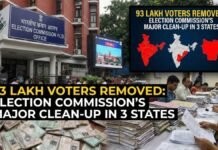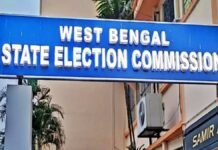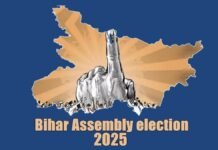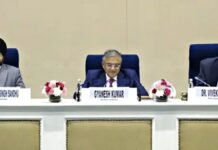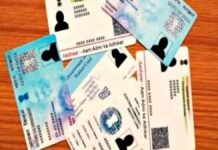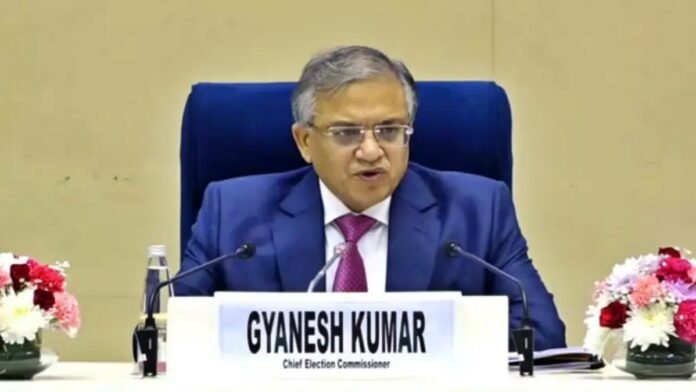
Key Points
- Election Commission launches second phase of Special Intensive Revision (SIR) in 12 states and union territories to clean voter lists
- Booth Level Officers (BLOs) will conduct three household visits to verify voter eligibility and remove duplicate entries
- Process targets 210 million voters who registered after 2002-2004 SIR period
- Voter lists frozen from October 28, 2025; final draft to be published on February 7, 2026
- Special focus on states with upcoming 2026 assembly elections: West Bengal, Kerala, Tamil Nadu, Assam, and Puducherry
- Verification includes citizenship checks and identification of foreign illegal immigrants
- First phase in Bihar saw successful completion with zero complaints from 75 million voters
New Delhi: Chief Election Commissioner Gyanesh Kumar announced the second phase of the Special Intensive Revision (SIR) at a press conference on Monday, marking the first comprehensive voter list cleanup exercise in over two decades. The initiative will cover 12 states and union territories, targeting approximately 210 million voters who registered after the last nationwide SIR conducted between 2002 and 2004.
The voter lists in these states will be frozen starting October 28, 2025, with the final draft scheduled for release on February 7, 2026. This timeline is strategically designed to ensure clean electoral rolls ahead of assembly elections in five states, West Bengal, Kerala, Tamil Nadu, Assam, and Puducherry, scheduled for May 2026.
Bihar Success Story Sets Template
The Election Commission pointed to Bihar’s first phase as a model for the nationwide rollout. The state’s 75 million voters actively participated in the cleanup process, which concluded with zero complaints, a significant achievement that demonstrates the effectiveness of the SIR methodology. This success has given confidence to election officials for the broader implementation across multiple states.
Three-Visit Verification Process
Under the SIR framework, Booth Level Officers (BLOs) will conduct three mandatory household visits to ensure comprehensive verification. During these visits, BLOs will deliver pre-field forms to every voter’s home and collect necessary documentation to verify eligibility. The process aims to accomplish multiple objectives: removing duplicate voter entries, adding new eligible voters who have attained 18 years of age by December 31, 2025, correcting errors in existing records, and verifying Indian citizenship.
A key focus of this revision is identifying and removing foreign illegal immigrants from voter lists by verifying voters’ place of birth and citizenship documents. The Election Commission has indicated particular attention will be paid to states like Kerala, Tamil Nadu, West Bengal, Assam, and Puducherry, where electoral integrity concerns have been raised in the past.
Addressing Urban Migration Challenges
According to the Commission, increasing urbanization and internal migration over the past two decades have created significant discrepancies in voter lists. Many voters have relocated from their registered addresses, while others have registered in multiple locations, creating duplicate entries. The SIR process is designed to address these issues by conducting on-ground verification at every household.
With India’s current voter base standing at 991 million, up from 700 million during the 2002-2004 SIR period, the Election Commission estimates that 210 million voters will need to provide updated documentation. This represents nearly 21% of the total electorate and underscores the scale of the cleanup operation.
States Covered in Second Phase
The second phase will be implemented in Andaman and Nicobar Islands, Chhattisgarh, Goa, Gujarat, Kerala, Lakshadweep, Madhya Pradesh, Puducherry, Rajasthan, Tamil Nadu, Uttar Pradesh, and West Bengal. The selection of these states considers both the upcoming electoral calendar and regions where voter list discrepancies have been most pronounced.
The Election Commission has assured that adequate resources and personnel will be deployed to ensure smooth implementation. BLOs have been provided with detailed training on verification protocols, and technological tools will be used to cross-reference data and identify potential duplicates or ineligible entries.
Timeline and Next Steps
The SIR process officially begins on October 28, 2025, with BLOs initiating household visits across all 12 states simultaneously. Voters will have multiple opportunities to submit documents and correct any discrepancies in their registration details. The Commission will maintain transparency throughout the process, with regular updates on progress and mechanisms for addressing grievances.
The final draft voter list will be published on February 7, 2026, after which a claims and objections period will allow voters to challenge any corrections or deletions. This comprehensive approach aims to ensure that the electoral rolls used in the 2026 assembly elections represent the most accurate and updated voter information, strengthening the foundation of India’s democratic process.




































